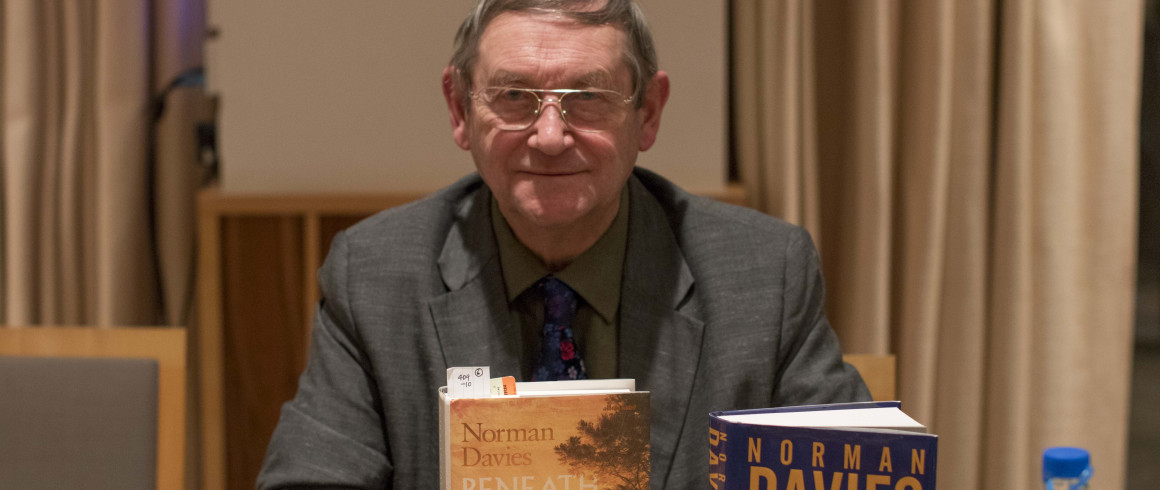Cabbages and Communism: Professor Norman Davies unpacks his Secret Police files
Norman Davies is a distinguished historian of Poland and Europe. In a talk he gave on the 15th November the history he was discussing a very personal one, told through the files kept on him by the Stasi.
The Institute of National Memory in Poland holds files collection by the network of “surveillance and invigilation” that existed in all Soviet states. Under Stalin this network of agencies was an instrument of mass terror and murder, but was apparently “less murderous than it had been” when Prof Davies arrived in the 1960s.
The secret police were not in fact very secret. The KGB had a recognisable uniform, but operated extra-legally and were both numerous and ubiquitous, allowing them an incredible level of control. Prof. Davies was assigned a Polish minder whose real name he didn’t know, and was a specialist in break-ins. He was “actually very pleasant”, and made notes about Professor Davies such as:
“Norman Davies is an intelligent young man. He’s a Welshman who never speaks well of the English”
or;
“Very disposed to talk if you offer him a free meal”
Professor Davies expected to see files on a wide range of topics, including: his books, which were censored in Poland, and the people taken to court for possessing them; his broadcasting activities and journalism; questions about his identity resulting from having the same name as an Oxford Professor who was a spy, and being suspected of being the son of the American ambassador Richard Davies; reports on Slavonic studies; and attempts by the intelligence services to recruit him.
The reality was unfortunately different. Despite initially being told a considerable number of files had been found, on arriving to inspect them Davies was told they’d been lost. Over the next 20 years the files remained lost until this summer, when a hidden cache was discovered. However the files were less than expected, and were all concerned with efforts to recruit him in the 1960s and late 80s. Prof. Davies listed several things that stood out to him:
- A list of his correspondence. For two years every letter was opened, with agents producing (inaccurate) assessments of the recipients and why they were communicating with Davies.
- Series of psychological assessments relating to his potential recruitment.
- A list of points on which he could be blackmailed, which led to a situation when he was called in for question and “ran for it”, which wasn’t mentioned in the final report.
- Books published by an underground solidarity movement consisting of chapters of Davies’ book. He knew of some of these, having been asked “do we have your permission to published one of your books without your permission”, which was done to protect the author from repercussions.
Davies’ commented that he was struck by both the “sheer magnitude” of these operations, but also their unreliability; many reports are false or lacking credibility because they were written with a very specific agenda. In one instance someone watching him reported that “Norman Davies is extremely uninteresting…he never left the hotel all day”. In reality he had driven out of town and encountered a group of Russian Soviet soldiers who were some of the first to come into Poland. In another instance his attendance at the first Polish-Jewish historical conference in Oxford was erased. Davies attributed this to the fact he shielded a woman from the rain who he now suspects was the one who wrote the report. He also found a picture of a cabbage among his papers, which he is not able to explain.
